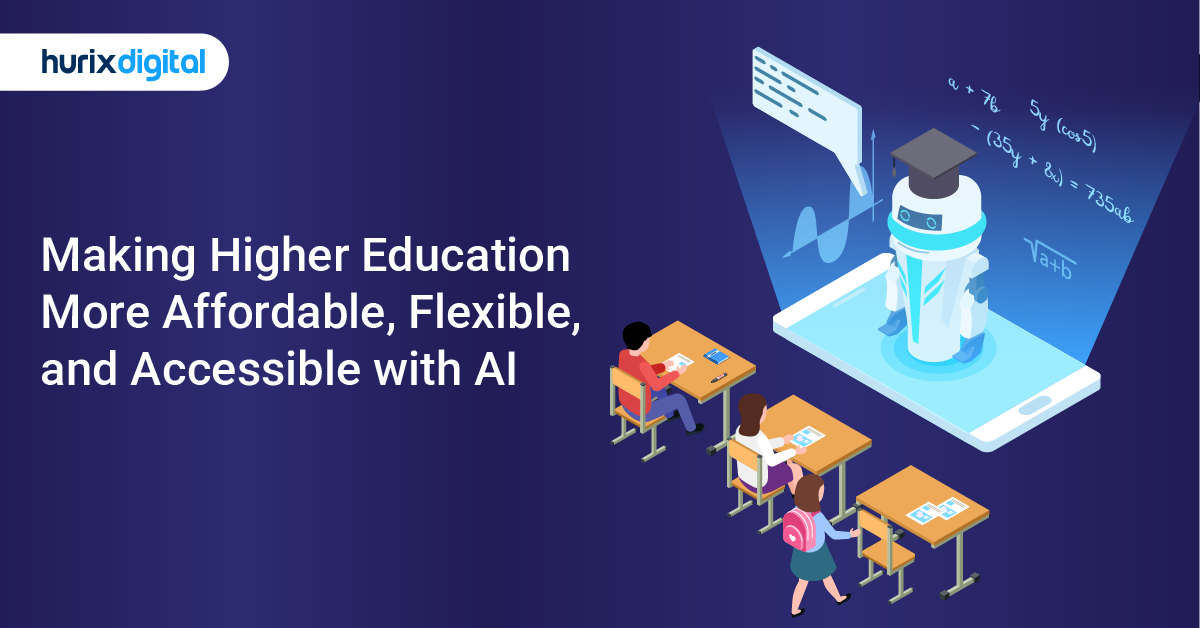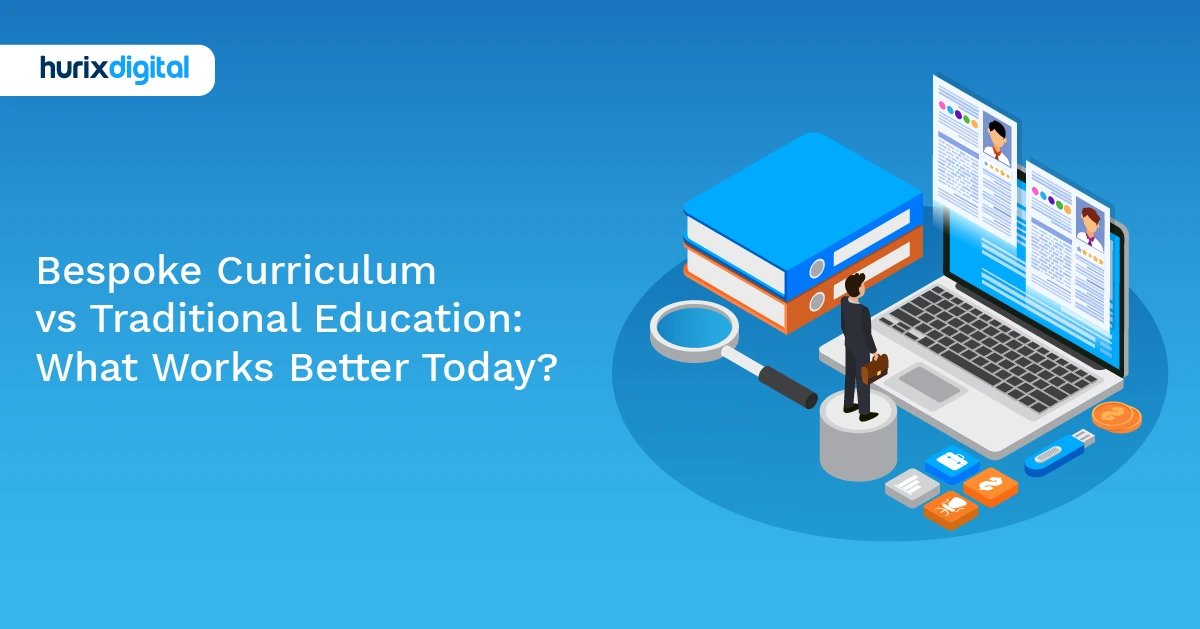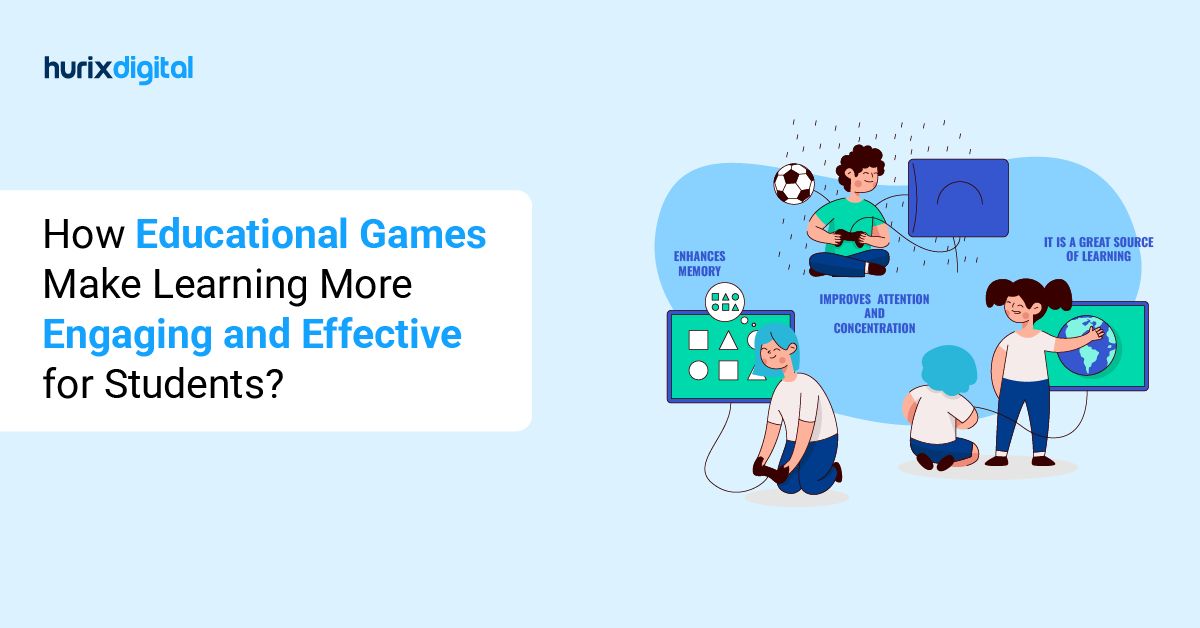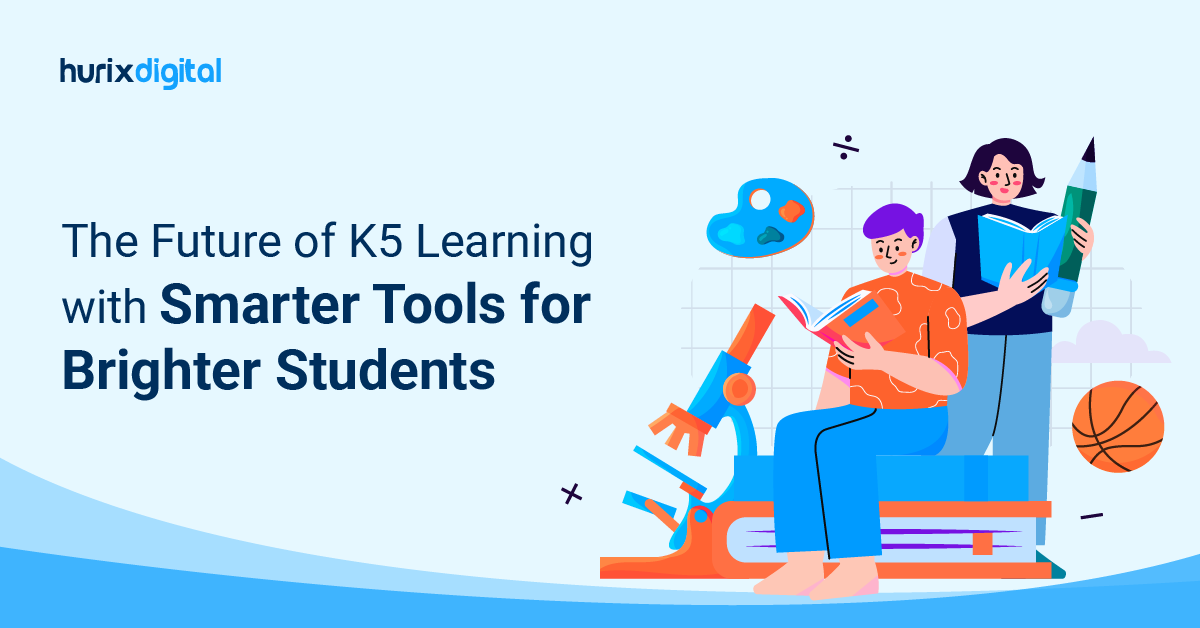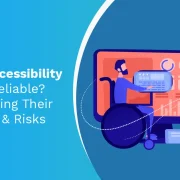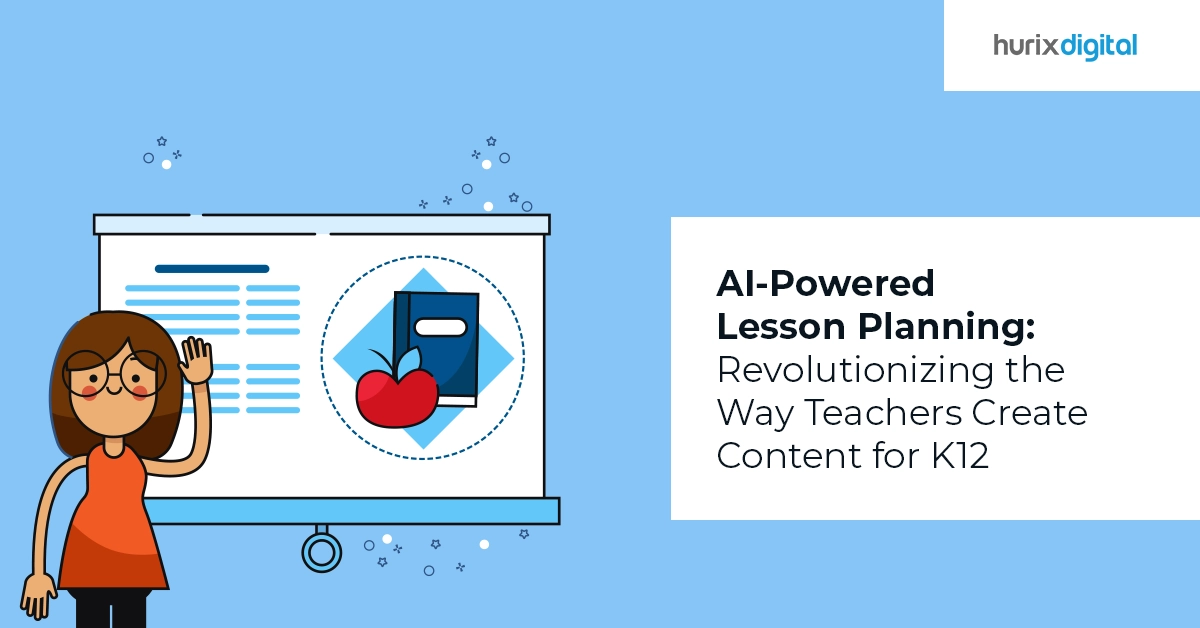
AI-Powered Lesson Planning: Revolutionizing the Way Teachers Create Content for K12
Lesson plans play a fundamental role in the imparting of K12 education. They work as a teacher’s guide, outlining what they need to teach and how they will teach and measure and evaluate learning.
Developing lesson plans usually consumes countless hours and effort, leaving teachers little to no time to focus on other important tasks. For this very reason, using educational technology to design lesson plans has become more important than ever.
Employing technologies like artificial intelligence (AI) in lesson planning is very beneficial. AI-powered lesson planning helps teachers design effective lesson plans quickly. In addition, 55% of teachers believe that AI improves educational outcomes and has a positive impact on the teaching and learning process in classrooms.
In this blog, we will delve into how artificial intelligence in education is revolutionizing the way teachers plan lessons, teach, and create content for K12 students.
Table of Contents:
- How AI is Revolutionizing the Way Teachers Create Content
- Generates Lesson Hooks and Objectives
- Fosters Personalized and Adaptive Learning
- Curates Dynamic and Engaging Content
- Curates Gamified Learning Experiences
- Curates Immersive Content and Experiences
- Generates Topics for Discussion and Reflection
- Provides a Variety of Options for Assessment
- Fosters Data-Driven Lesson Planning
- The End Note
How AI is Revolutionizing the Way Teachers Teach and Create Content
Using AI in education has a profound impact on the pedagogical practices followed by teachers. From bespoke K12 curriculum development to automating grading assessments, AI benefits teachers and accentuates their teaching style in a variety of ways.
Let’s explore the impact of AI on teaching and learning in detail.
1. Generates Lesson Hooks and Objectives
Learning objectives are an important component of lesson planning. They indicate the knowledge and skills a student should have acquired by the end of the course. Thus, they set up a goal for students to achieve.
AI-powered lesson planning tools can help teachers come up with specific, valuable, and measurable objectives for studying a course. In addition, they can help teachers make lessons interesting by generating eye-catching hooks for the lesson.
For instance, teachers can start their lessons with an interesting anecdote or with a joke related to the subject matter.
Also Read: ChatGPT: Pros and Cons of Using ChatGPT in Higher Education
2. Fosters Personalized and Adaptive Learning
An integral element of lesson planning involves providing personalized learning pathways to students.
AI tools enable teachers to tailor lessons to each student’s academic strengths and weaknesses. They also enable teachers to provide students with the opportunity to study according to their preferred style.
As a result, students learn at a pace that is comfortable for them. In addition, students also get to modify the font shape, background color, font size, and other features of their learning material.
Besides customization, AI tools enable teachers to provide students with an adaptive learning experience. AI tools analyze student data and modify the lesson in real time to meet each student’s learning needs.
3. Curates Dynamic and Engaging Content
Teachers must understand how to capture their students’ attention when planning lessons. AI tools help in the curation of wide-ranging course material and make holding students’ attention a breeze.
AI tools help teachers effectively create bite-sized lessons that function well across multiple devices. AI tools enable teachers to create media-rich study material in the form of videos, audio, animations, infographics, PPTs, etc.
Media-rich content makes learning a highly engaging experience, helps students understand concepts better, and improves their capacity for information retention.
4. Curates Gamified Learning Experiences
While planning lessons, teachers aim to make them as captivating for the students as possible. AI tools enable teachers to achieve this aim by introducing elements of gamification in the learning process.
AI tools add numerous goals to the lessons, with each goal a bit more difficult to achieve than the previous one. When a student completes one goal, the student is rewarded with elements like badges, points, scores, etc.
Gamification elements drive students to achieve one goal after another, keeping them hooked on learning.
5. Curates Immersive Content and Experiences
Technologies like AI, VR, and AR enable teachers to curate immersive learning content and experiences for students.
For instance, students can virtually view the intricate structure of the human brain, witness the result of mixing chemicals explosive in nature, visit the Pyramids in Egypt, and so on. Immersive learning experiences help students understand the real-life application of theoretical concepts.
6. Generates Topics for Discussion and Reflection
Interaction facilitates the development of important interpersonal skills and broadens perspectives, making it an important component of holistic education.
Using AI tools, teachers can generate several topics for discussion and reflection, which will help facilitate student interaction with other students and teachers. In addition, discussion and reflection will build students’ critical thinking, problem-solving, and public speaking skills.
7. Provides a Variety of Options for Assessment
Selecting assessments is an essential part of effective lesson planning. Using artificial intelligence in education, teachers can curate a broad variety of assessments, such as multiple-choice questions, fill-ups, true-or-false, match the following, and more.
Teachers can also develop subjective assessments like project-based assessments and case-based assessments. Teachers can insert these assessments in between the chapters and also at the end of each chapter.
This will enable teachers to gain regular insight into each student’s progress and knowledge and to provide timely and actionable feedback to students.
8. Fosters Data-Driven Lesson Planning
Employing AI-powered tools in education fosters data-driven lesson planning. AI tools take into account student engagement, behavior, demographics, and learning needs.
They also consider students’ scores on assessments and recommended feedback. Based on all this data, AI-powered tools enable teachers to inform individual lesson plans and instructions to cater to and provide a wholesome learning experience for every student.
Also Read: Top 10 Learning Management System Platforms for Education
The End Note
Utilizing artificial intelligence in education is crucial for effective lesson planning and teaching. According to Forbes, 60% of teachers use AI in their classrooms to improve the quality of their teaching and to streamline day-to-day teaching responsibilities.
With AI playing such an important role in the imparting of education, it is high time to start using AI-powered tools in your classroom. If you want to expedite this integration, consider reaching out to Hurix Digital.
Hurix Digital provides custom AI solutions to help you meet your students’ needs. With cutting-edge ed-tech tools, you can formulate effective lesson plans and provide state-of-the-art education to K12 students.
To know more about AI-powered educational solutions, get in touch with us.

Senior Vice President
A Business Development professional with >20 years of experience with strong capability to sell new solutions and develop new markets from scratch. New Market Entry Specialist with experience working in the largest emerging markets. Exceptional experience in conceptualizing, ideating and selling new learning technologies like VR AR, etc. across multiple industry verticals.

